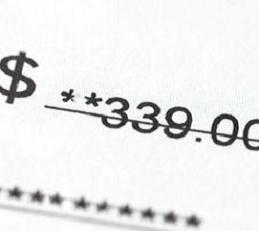What happens to deposit if sale falls through
What happens if a home sale falls through? What to expect when a real estate deal falls apart? If a house sale falls through due to the seller, who gets the deposit If the house sale falls through because of the seller , the deposit may be refunded to the buyer. So in this case the buyers would get the deposit money back. At the very least, the seller may also be liable for financial damages at this stage.
A buyer or seller can pull out at any point up to exchange of contracts, without having to pay any damages to the innocent party.
If a buyer or seller pulls out after exchange of contracts, the party in breach will be liable for damages and will forfeit the deposit provided on exchange. Is there anything you can do to prevent this from happening? Do legal fees apply if a house sale falls through ? My daughter may pull out of a property purchase – will she have to pay her solicitor for work done so far?
Some legal fees may not apply if the. A firm deal is one which doesn’t have any conditions or the conditions have been satisfied by the Buyer and “waived” or “fulfilled” effectively removing them from the deal. If the Buyer fails to fulfill their obligation to close the deal you must sue the Buyer for the real estate deposit and win, effectively have the deposit money (and anything over and above) rewarded to the Seller as damages.
Ideally, a savvy real estate agent will be able to spot a problematic purchaser early and make sure a botched sale is avoided. But if a sale offer does fall through, vendors suddenly face the prospect of another expensive and time-consuming campaign to try and sell their property again.
In this event, Nugent recommends swift action. As such, the deposit lodged by the buyer at the bottom of the chain may be taken into account and passed up the chain. In nearly every real estate purchase contract, the seller will require that the buyer deposit earnest money – a sum of money that the buyer puts into trust during the transaction to demonstrate good faith.
The earnest money amount is often dictated by the seller, and can be a flat price or a percentage of the purchase price. If a deal fails at the last minute, the buyer is likely to have already paid their initial deposit. This will be held by the seller’s real estate agent, but can only be returned if all parties agree to sign a mutual release form. This prevents buyers from backing out of purchases last minute without a good reason. If the seller refuses to sign the mutual release form , your deposit, which is held in a trust account, remains in trust until it is released by court order.
A disgruntled seller may decide to sue for damages that result from the failed purchase agreement. More often than not, you’re still required to pay legal fees if your sale falls through , although this isn’t always the case. Check the terms and conditions of your agreement with your conveyancer so you know which camp you’re in. Question: My fiancé and I were trying to buy a house but had to pull out because our survey revealed significant damp issues and the seller would not reduce the asking price or contribute to the cost of the work to sort out the problem. In such circumstances, the deposit must be refunded to the Buyer.
The Seller can terminate if the Buyer is in breach in which case the Buyer will lose the deposit paid. If the Buyer can demonstrate that the lockout agreement has been breache by the Seller, the usual remedy is to claim the abortive costs of the transaction. A lot can happen during this time for a sale to fall through.
To begin, it’s important to understand that house sales on the open market are often part of a property chain. When an individual is looking to buy a property it’s likely that they’re selling their current home at the same time too.
One story in my book tells how buyers, relying on a prior sale condition to get out, lost their deposit because they had not done all things reasonably necessary to sell their own home. If your buyer defaults or terminates without validity, you may accept this and elect to forfeit the deposit. You may also sue for damages.
If you’ve had a home sale fall through , you may wonder how to minimize your risk this go-around. Here are some steps to take before relisting your home: Get a pre-listing home inspection to prevent surprises down the road. If your home sale fell apart because of an appraisal issue, work with your agent to be sure the price is right.


Comments
Post a Comment